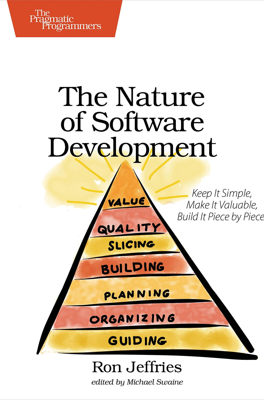Creating Teams That Thrive
Creating Thriving Teams in Software Development
Purpose, Autonomy, and Mastery: The book draws on concepts from Daniel Pink's [Drive], highlighting that Purpose, Autonomy, and Mastery are crucial for both employee satisfaction and productivity.
Role of the Product Champion: A key role, often referred to as the Product Owner or Customer, is pivotal in providing purpose. The Product Champion should maintain daily contact with the development team, guiding them on priorities and delivering business vision, but not dictating specific solutions. This allows the team to engage creatively with problems, increasing their attachment to the product’s purpose and enhancing their performance.
Empowerment through Autonomy: - Autonomy delegates the responsibility of how problems are solved to the team. This system trusts the team’s decisions without micromanagement, fostering a learning environment where results are visible and shared. - During each two-week iteration, the team discusses with the Product Champion what needs to be achieved. They then decide on the achievable workload and self-organize to deliver it, culminating in a showcase of the developed software.
Achieving Mastery through Iteration: - Each iteration provides the team an opportunity to refine their work definition of “done”, improving quality and efficiency over time. - Regular retrospectives help the team reflect on the past sprint and devise strategies to improve their processes and output. - The iterative cycle supports continuous enhancement of skills and processes, steering the team towards mastery of software development.
Ideal Team Environment: The perfect setting is a self-organizing team that has a clear understanding of its purpose and the autonomy to execute tasks, continually advancing towards mastery through iterative practices. This environment not only maximizes productivity but also aligns well with agile methodologies like Scrum, which emphasizes on the ethos of "Inspect and Adapt."
In summary, fostering a team environment that stresses purpose, grants autonomy, and focuses on mastery through iterative learning creates a productive, motivated, and continuously improving team dynamic. This approach aligns with the overarching themes of effective project management and value-driven development.
